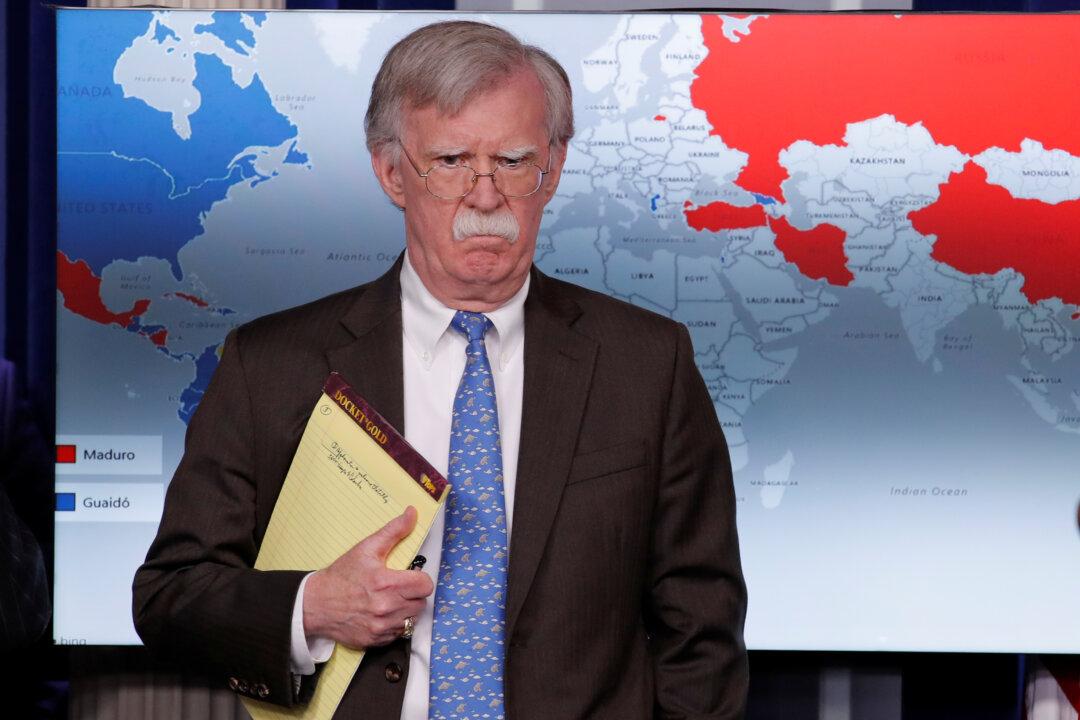A notepad with the words “5,000 troops to Colombia” scribbled on it has raised questions about potential U.S. military actions in Venezuela, after White House national security adviser John Bolton was pictured holding it at a press briefing Jan. 28.
Despite mounting international pressure against socialist dictator Nicolas Maduro’s regime, thousands are still continuing to flee Venezuela into neighboring Colombia.





